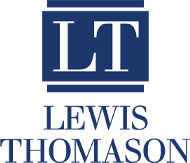Along with the ever-increasing importance of information in our society come various legal rights to access that information. Some of those rights to information have been established for decades.[1] Other information access rights are nascent, with some not yet in existence. [2]
Since the enactment of the Tennessee Revised Limited Liability Act (“Act”) nearly two decades ago, members of Tennessee limited liability companies have had a general, if somewhat qualified, right of access to the LLC’s documents.[3] Several qualifications to this right notwithstanding, a member’s right to information or access to records is a right that may not be unreasonably restricted in the company’s articles of organization or operating agreement.[4] Particularly for LLCs with a relatively large number of members, the issue of information access rights may warrant consideration at formation, followed by periodic re-evaluation.
As in many other areas of LLC governance, an initial place to start is determining whether any statutory provisions may or should be altered in the LLC’s governing documents. There are several factors to consider for companies wanting to delineate the right to information beyond the statutory provisions.[5] Regarding the scope of documents that may be requested, current members, former members and financial rights holders are categorically entitled to “information reasonably required to comply with the requirements of either federal or state tax laws concerning their financial rights.”[6]As stated in the statute, this right would only apply to former members (including deceased former members or those under legal disability) during the periods in which they were members; however, current members are entitled to such information without demand. Beyond that, however, at the categorical level, only “information concerning the LLC’s business or affairs reasonably required for the proper exercise of the member’s rights and performance of the member’s duties under the LLC documents” or the Act must be provided by the LLC without demand. This category would not likely apply to former members or financial rights holders.[7] At a more specific level, LLCs should remain mindful of the list of record categories required to be maintained per the Act.[8] At a minimum, current members are likely to have rights to these twelve categories of documents upon written demand.
Beyond the required provisions, most of which are addressed above, LLCs may consider some narrowing provisions. As to former members, beyond any information necessary for tax return preparation (which, for past years, should likely have been provided previously), LLCs may consider whether a written demand for company information is for a “proper purpose” and the request must relate to the periods during which they were members. Likewise, even for current members, a request for information that is not reasonable or, under the particular circumstances for the request, is improper, need not be honored. Confidentiality considerations may also come into play here, including the execution of separate agreements, such as non-disclosure agreements and requiring any agents of members to likewise agree to restrictions on use and disclosure. The costs for responding to information requests may be assessed against members; however, copies of the LLC governing documents and the records required to be maintained under § 48-249-406 must be copied upon demand at the LLC’s expense. As applicable, provisions for information access by managers, directors and officers may also be included in the LLC governing documents.
In both considering adding or amending provisions in LLC governing documents and handling information access requests, LLCs should be mindful of the statutory remedy available to both members and holders of financial rights to seek judicial enforcement of access rights to company information. While not squarely addressed in Tennessee, Delaware courts have held that there is no obligation to create documents that do not exist in response to an information request.[9] For those documents that are in existence and within the right to inspect, Tennessee courts may award the requesting member attorney’s fees and costs if the court finds the access request was denied “without a reasonable basis for doubt regarding the right of the member or holder of financial rights to inspect the records demanded.”[10]
The provision of certain LLC records and other company information to the appropriate constituents is typically a matter of routine operation. However, given the potential for dispute and unnecessary expense when faced with non-routine requests, particularly those that may be improper or repeated, access to company information is an area that may merit consideration in the LLC’s governing documents. Statutory provisions and governing documents should be carefully considered to ensure that information access rights are appropriately balanced with the company’s need to respond to these requests appropriately yet efficiently.
[1] E.g., 45 C.F.R. § 164.524(a)(i) (“[A} n individual has a right of access to inspect and obtain a copy of protected health information about the individual in a designated record set.”); Tenn. Code Ann. § 10-7-503(2)(A) (“All state, county and municipal records shall . . . be open for personal inspection by any citizen of this state.”)
[2] E.g., Tenn. Code Ann. § 47-18-3304(a)(2)(D) (Starting July 1, 2025, a Tennessee resident may obtain “a copy of the consumer’s personal information that the consumer previously provided to” a business covered by the Tennessee Information Protection Act).
[3]Tenn. Code Ann. § 48-249-308.
[4] Tenn. Code Ann. § 48-249-205(b)(12).
[5] For a similar article addressing considerations for Delaware LLCs, see, Ken Powell and Devaughn Swanson, “How Delaware LLCs Can Protect Themselves against Abusive and Illegitimate Information Requests by Members or Managers,” ABA Business Law Today (Nov. 2023), www.americanbar.org/groups/business_law/resources/business-law-today/2023-november/how-delaware-llcs-can-protect-themselves-against-abusive-illegitimate-information.
[6] Tenn. Code Ann. § 48-249-308(b)(1) & ©
[7] Tenn. Code Ann. § 48-249-308(b)(2).
[8] Tenn. Code Ann. § 48-249-406.
[9] See Durham v. Grapetree, 246 A.3d 566 (Del. 2021) (upholding chancery court’s denial of access to information application because, in part, it “called for the company to create documents that did not exist”).
[10]Tenn. Code Ann. § 48-249-308(d).
This article originally appeared in the Tennessee Bar Association’s Business Law Section newsletter on Dec. 16, 2023 and is reprinted here with permission.





